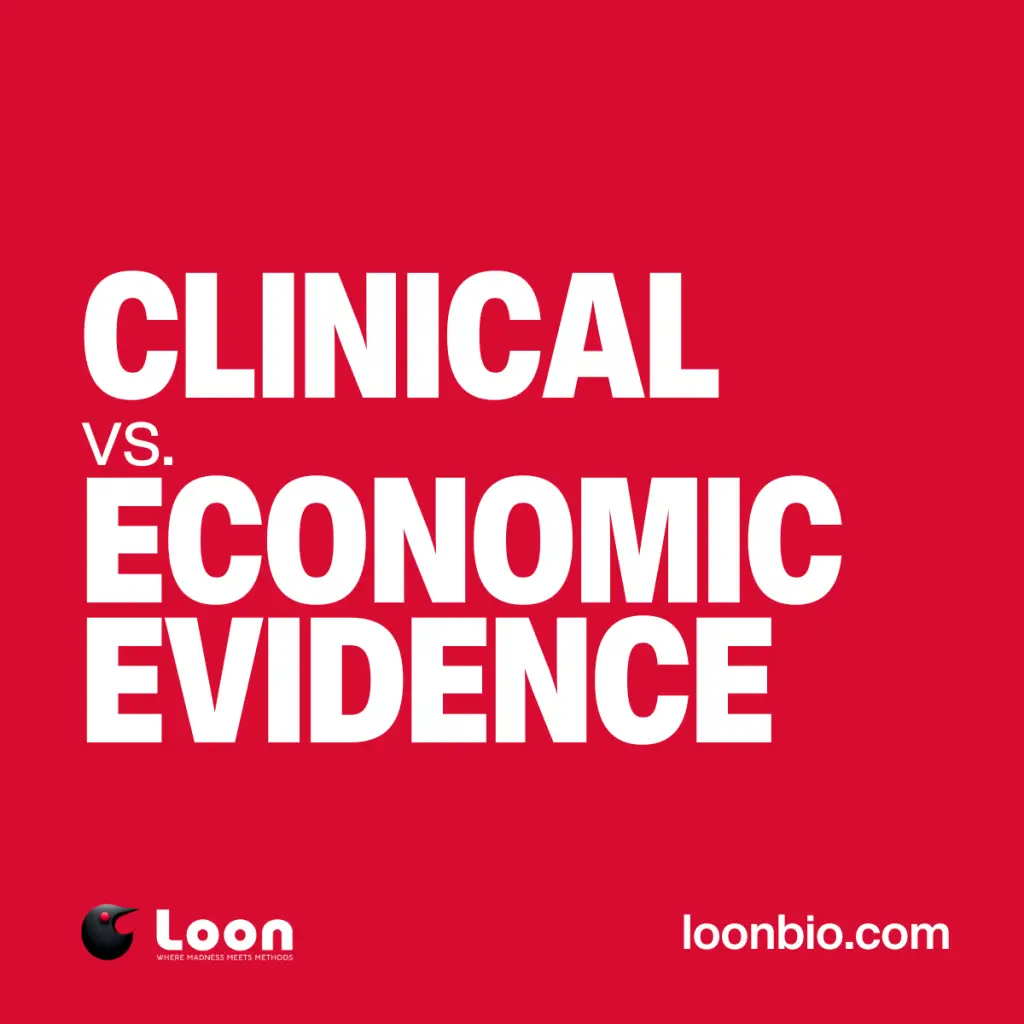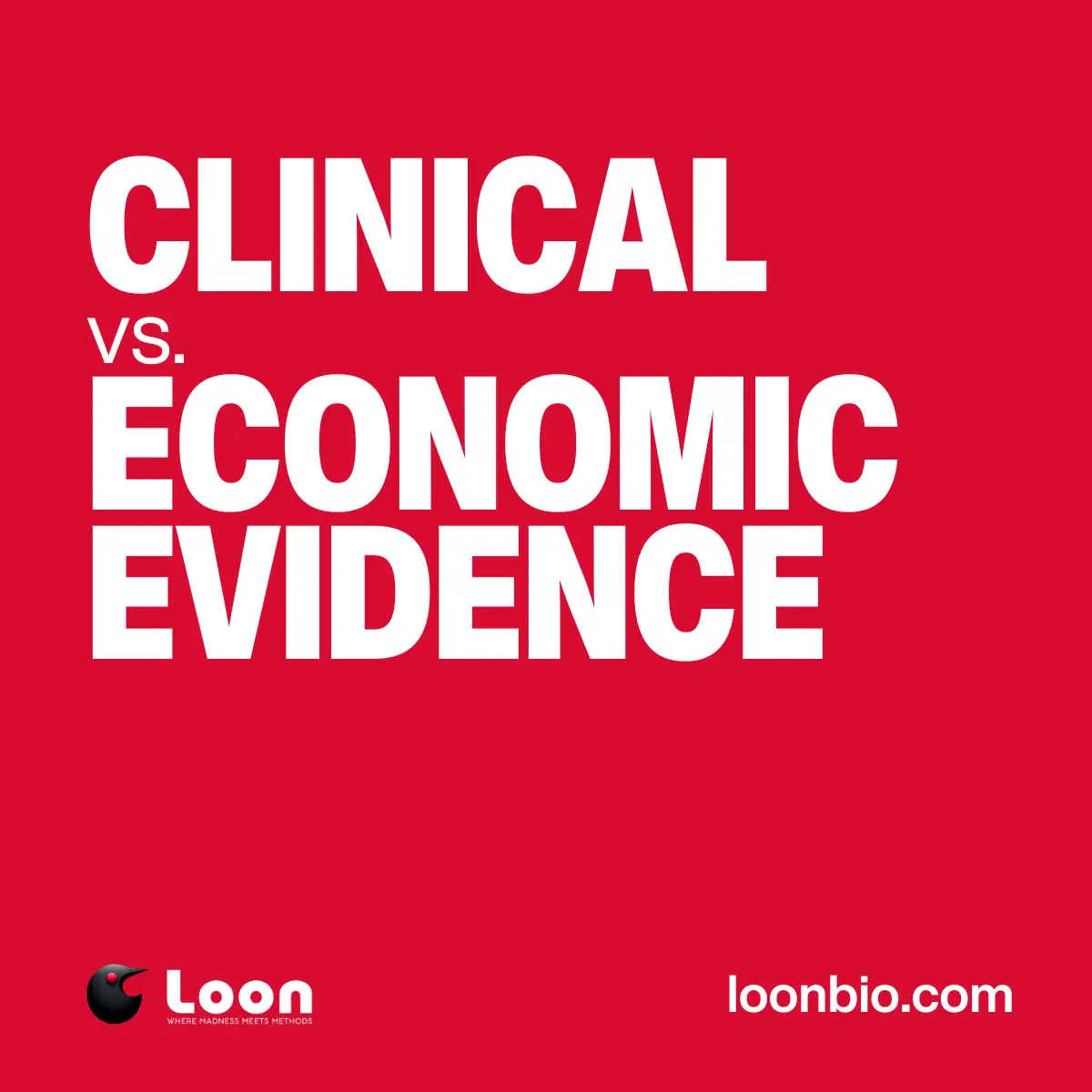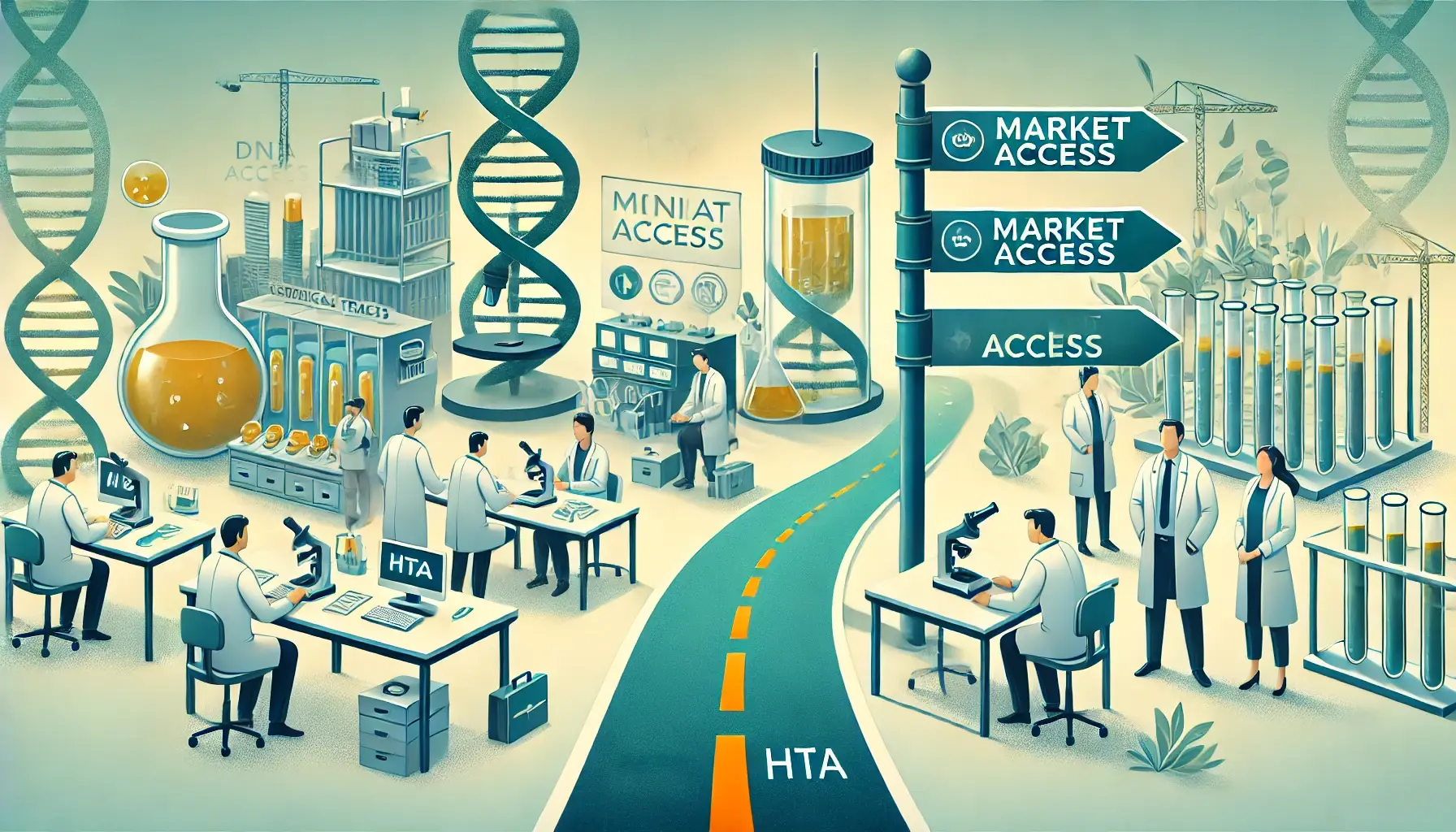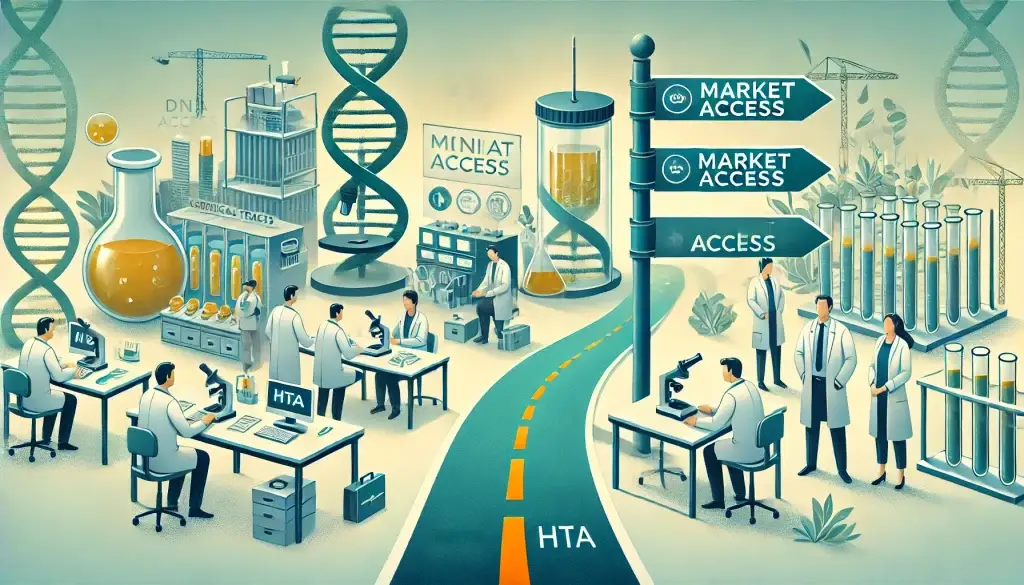In the complex world of biopharma, success hinges on more than just clinical breakthroughs. While regulatory approval is often celebrated as a significant milestone, it does not guarantee market access or patient adoption. A critical, yet frequently overlooked factor, is the integration of clinical and economic evidence during drug development and commercialization. The interplay between these two pillars determines whether therapies not only meet regulatory standards but also secure payer acceptance, achieve market success, and most importantly, reach the patients who need them.
This article explores why balancing clinical and economic evidence is essential, highlights notable case studies, and provides actionable insights for biopharma companies to navigate this challenging landscape.

Balancing Clinical and Economic Evidence in Drug Development and Biopharma Commercialization
Biopharma companies traditionally prioritize clinical trial outcomes, focusing on safety and efficacy to meet regulatory requirements. While these metrics are critical for approval, they alone do not convince payers of a therapy’s value.
Payers demand economic evidence
To evaluate a new therapy’s value relative to its cost, payers require comprehensive health economic data, including cost-effectiveness analyses and budget impact models. This data enables them to determine whether a therapy delivers sufficient value to justify its price. Without this, even groundbreaking treatments can face reimbursement hurdles.Neglecting economic evaluations can lead to:
- Reimbursement denials or delays
- Limited patient access
- Financial losses for biopharma companies
The lesson is clear: clinical success does not automatically translate into payer acceptance or commercialization success. Integrating economic evidence from the earliest stages of development is crucial.
The Dual Mandate: Clinical and Economic Evidence
1. Regulatory Approval vs. Market Access
Regulatory bodies focus on a therapy’s safety and efficacy. However, achieving market access requires demonstrating value to payers and HTA (Health Technology Assessment) bodies, which consider factors such as cost-effectiveness, quality-adjusted life years (QALYs), and budgetary impact.
For instance, CAR-T therapies, which offer transformative potential for certain cancers, faced significant reimbursement challenges. Despite their clinical promise, their high upfront costs and limited long-term cost-effectiveness data initially deterred payers.
2. The Role of HTA in Reimbursement Decisions
Health Technology Assessment (HTA) bodies play a pivotal role in evaluating therapies for reimbursement. They assess not only clinical benefits but also economic viability. Engaging with HTA bodies early can help align trial designs with payer expectations, as demonstrated by Spinraza’s (Biogen) proactive approach.
3. The Consequences of Neglect
Failure to prioritize economic evidence can have costly consequences. Provenge (Dendreon) is a cautionary tale. Despite demonstrating clinical efficacy in treating prostate cancer, the absence of robust cost-effectiveness data hindered its market adoption, leading to commercial struggles.
Case Studies: Lessons in Balancing Evidence
1. CAR-T Therapies: Early Hurdles and Strategic Adjustments
Challenge: CAR-T therapies initially faced payer resistance due to their high upfront costs and insufficient long-term data.
Resolution: Companies have since invested in generating comprehensive cost-effectiveness analyses and real-world evidence to address payer concerns.
Read More in the Journal of the National Cancer Institute.
2. Provenge: The Cost of Economic Oversight
Challenge: Provenge, an innovative prostate cancer therapy, struggled to gain traction despite its clinical efficacy.
Reason: Insufficient payer engagement and a lack of economic evidence left decision-makers unconvinced of its value.
3. Spinraza: A Model for Success
Approach: Biogen engaged with HTA bodies and patient groups early, ensuring both clinical and economic data met payer expectations.
Outcome: Widespread reimbursement and adoption, securing Spinraza’s position as a market leader in spinal muscular atrophy treatment.
Read More in APM Health Europe.
Strategies for Success
To avoid the pitfalls of neglecting economic evidence, biopharma companies should integrate the following strategies into their development and commercialization processes:
1. Market Access Forecasting
Incorporate market access considerations into early planning stages. Identify payer expectations and HTA requirements to guide trial designs and data collection.
2. Health Economic Models
Develop robust cost-effectiveness models that include real-world evidence and long-term outcomes. These models should address potential concerns about affordability and sustainability.
3. Early Payer Engagement
Develop robust cost-effectiveness models that include real-world evidence and long-term outcomes. These models should address potential concerns about affordability and sustainability.
4. Cross-Functional Collaboration
Foster collaboration between clinical, regulatory, and market access teams. This ensures alignment and integration of clinical and economic evidence throughout the product lifecycle.
Conclusion
In the high-stakes world of biopharma, balancing clinical and economic evidence is no longer optional—it is essential. Companies that proactively address both dimensions are better positioned to navigate reimbursement landscapes, achieve market success, and deliver therapies to patients.
The case studies of CAR-T therapies, Provenge, and Spinraza illustrate the profound impact of this balance. By prioritizing economic evidence alongside clinical outcomes, biopharma companies can ensure their innovations translate into real-world benefits for patients and sustainable value for stakeholders.
Ready to Optimize Your Biopharma Strategies and Elevate Your Market Access Strategy?
If you want to dive deeper into how to integrate Market Access strategies into your clinical development roadmap, subscribe to our blog or reach out to discuss your specific challenges. In upcoming posts, we’ll explore how to effectively balance clinical and economic evidence to meet both regulatory and payer expectations—and ultimately drive patient access. Don’t miss out on actionable insights that can make the difference between a successful commercial launch and a missed opportunity.
The Looney Tools
Navigating the complexities of Market Access and HTA doesn’t have to be a daunting, years-long process. At Loon, we combine innovation with precision to transform how biopharma approaches evidence synthesis and market access forecasting. Our suite of tools—Loon Lens™, Loon Hatch™, and Loon Waters™—is designed to empower your team with faster, smarter, and scientifically validated solutions to elevate your Access Strategy.
- Loon Lens™ accelerates literature screening with AI precision, cutting timelines dramatically while ensuring no critical studies are overlooked.
- Loon Hatch™ revolutionizes systematic reviews, reducing 2,500 person-hours of effort to just 85, delivering HTA-ready evidence in days, not years.
- Loon Waters™ optimizes market access forecasting, enabling you to predict and enhance reimbursement outcomes with unparalleled accuracy.
Don’t let delays or inefficiencies hold back your innovation. Subscribe to our blog or reach out today to see how our tools can transform your commercialization pathway and ensure your therapies reach patients faster. Together, let’s make timely, life-saving access a reality.
FAQs
What is the role of economic evidence in drug development?
Economic evidence demonstrates a therapy’s value relative to its cost, addressing payer concerns and facilitating reimbursement.
Why do clinical and economic evidence need to be balanced?
Clinical success ensures safety and efficacy, while economic evidence secures payer acceptance and market access.
What is an HTA body?
Health Technology Assessment bodies evaluate the clinical and economic value of therapies to guide reimbursement decisions.
How can companies integrate economic evidence early?
By engaging payers, HTA bodies, and patient groups during the development phase to align trial designs with market needs.
What are cost-effectiveness analyses?
These analyses evaluate a therapy’s costs relative to its health benefits, often expressed in QALYs.
What happens if economic evidence is insufficient?
Therapies may face reimbursement delays, limited market adoption, or financial losses.
How did Spinraza achieve market success?
Biogen ensured that its clinical and economic data met payer expectations through early engagement and robust modelling.
What is real-world evidence/data?
Data and evidence collected outside clinical trials, such as patient outcomes and healthcare utilization, to support cost-effectiveness.
Why is payer engagement crucial?
Early engagement ensures trial designs generate relevant data for reimbursement decisions.
How can Loon’s tools help biopharma companies?
Loon Lens™, Loon Hatch™, and Loon Waters™ provide screening, synthesis, analytics, trial design support, and reimbursement forecasting to optimize market access strategies.





